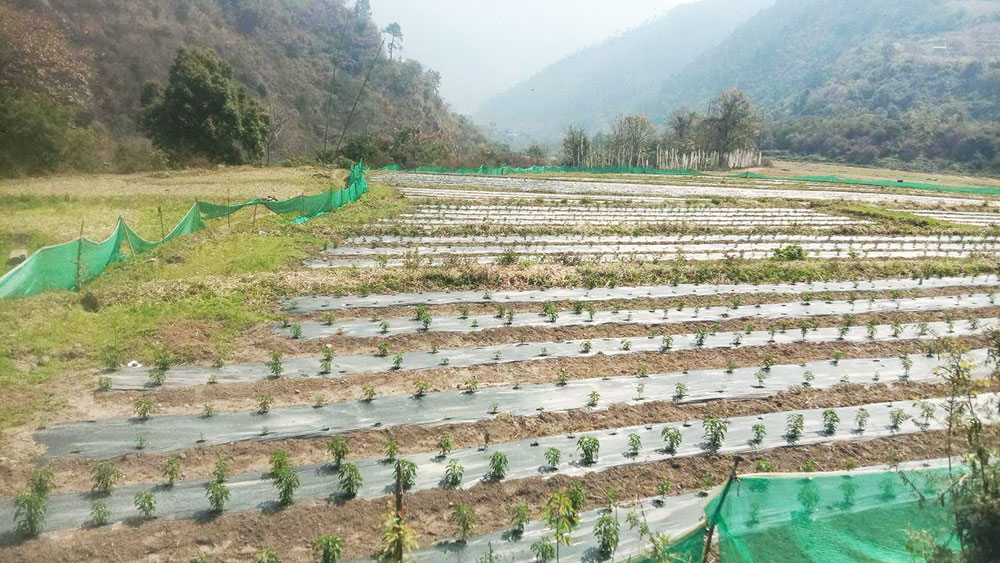Tshering Namgyal | Mongar
Three groups of farmers in Mongar started growing chilli in a large scale since 2021 as part of the winter chilli programme to address the acute shortage in the country.
The farmers’ group in Yangbari under Gongdue gewog made their first harvest of around 600kgs in January this year and sold it at Nganglam town.
They fetched a good price from the produce.
About 42 farmers in the village are engaged in chilli farming.
Last year, they grew chillies in three acres of land and harvested about 3,700kgs, which the farmers sold it in Nganglam town for Nu 200 to 300 a kilogramme.
Motivated by the good yield, the three farmers’ groups and some farmers expanded it to 15 acres this year.
The farmers will make the harvest soon next month.
Similarly, another farmers’ group, Litishong Tshesey Detshen with 16 members made their first harvest of about 300kgs in January.
The group grew chillies in seven acres of land last year and increased to 10 acres this year.
Another prominent farmers’ group that focuses on large scale chilli farming in the dzongkhag is Geza Duejung Tshogpa of Saling gewog.
Although they are waiting to harvest by the end of this month or early April, the 15-member group expects the production to increase by 30 percent compared to last year as the land size has been increased from 2.5 acres to 4.5 acres.
Last year, the group sold about 3,000 kg of green chilli earning them about Nu 800,000 as it fetched them Nu 100 to 350 a kilogramme.
However, the chilli growers are worried about the chilli import permitted by the government.
“Price of the imported chilli price is much lower and we can’t compete with them. We are worried about the challenges if the import continues,” the chairperson of Litishong Tshesey Detshen, Pemala, said.
The lead farmer and the member of Geza Duejung Tshogpa, Dawa Yoezer, said chilli cultivation is labour-intensive and fuel for farm machinery also increased.
He said each member would have contributed at least over a month for now. “We are concerned of not getting the expected price this time.”
Mongar dzongkhag agriculture officer, Kunzang Tshering, said there is no big market issue for the local chilli.
“The dzongkhag agriculture sector, in collaboration with stakeholders like Bhutan Agriculture and Food Regulatory Authority (BAFRA) stop importing chillies if local produce meets the demand,” he said.
Meanwhile, the farmers’ groups receive technical and material supports like seed and mulching plastics from the agriculture sector.


